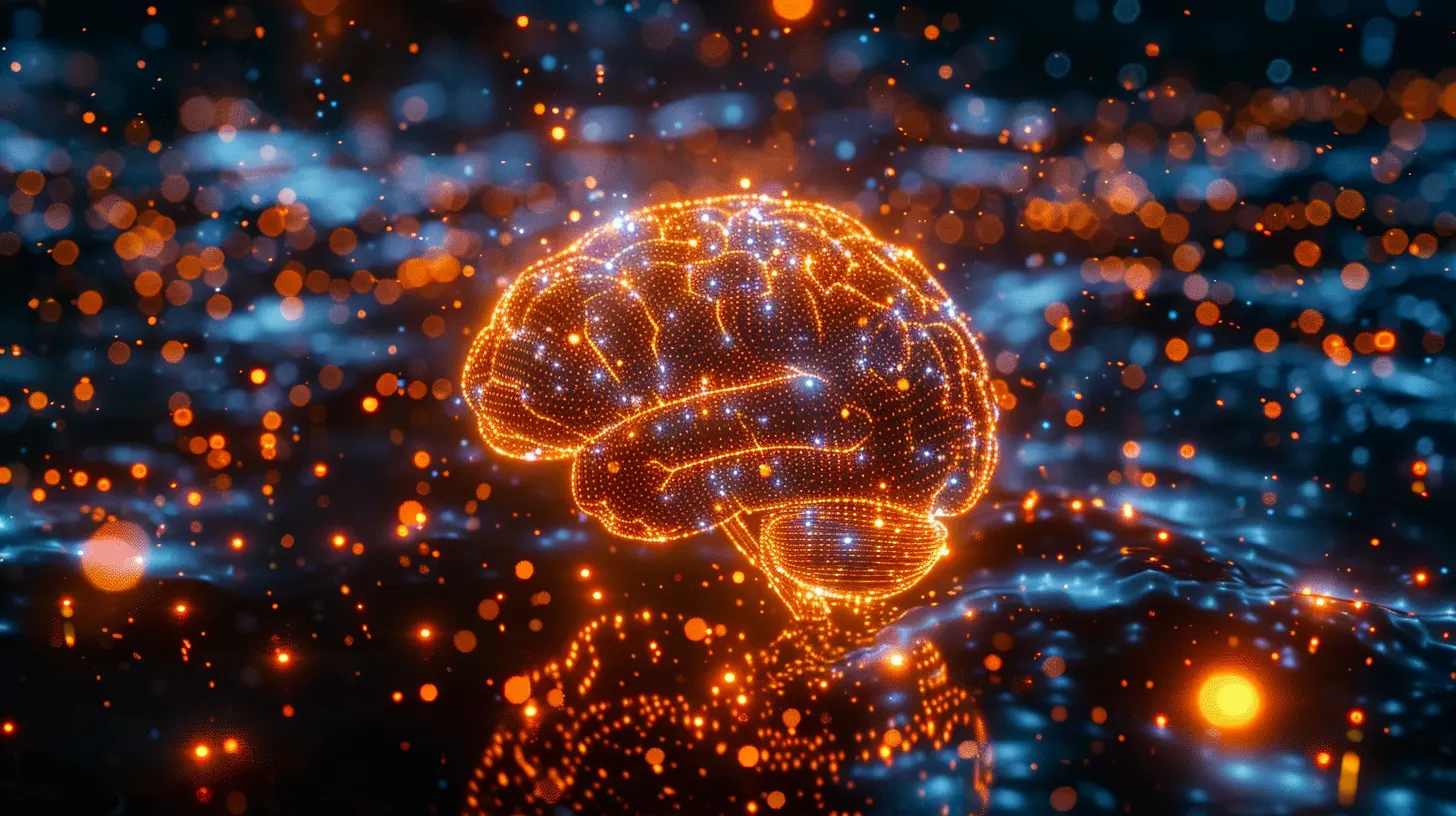How Machine Learning is Revolutionizing eCommerce Personalization
31 August 2025
The world of eCommerce is constantly evolving, and one of the biggest game-changers in recent years has been machine learning. It’s no longer just about selling products online—it’s about understanding customers on a deeper level and delivering highly personalized shopping experiences.
If you've ever wondered how Amazon seems to know exactly what you need before you do or how Netflix recommends your next binge-worthy show, the answer lies in machine learning. And now, this technology is transforming the eCommerce industry, making online shopping more intuitive, efficient, and customer-centric than ever.
Let’s dive into how machine learning is revolutionizing eCommerce personalization and why it’s a big deal.

What is Machine Learning in eCommerce?
Before we get into the nitty-gritty, let’s break it down—what exactly is machine learning?Machine learning (ML) is a subset of artificial intelligence (AI) that enables computers to learn patterns from data and make decisions without explicit programming. Instead of following rigid rules, ML algorithms continuously improve based on the data they process.
In eCommerce, machine learning analyzes customer behavior, preferences, and purchasing patterns to deliver highly customized experiences. Whether it’s personalized product recommendations, dynamic pricing, or targeted marketing campaigns, ML is making online shopping feel more like a one-on-one conversation rather than a one-size-fits-all approach.

The Power of Machine Learning in eCommerce Personalization
Personalization is no longer a luxury—it’s an expectation. Customers don’t just want to see random products; they want relevant suggestions that match their interests and needs.Here’s how machine learning is making that possible:
1. Personalized Product Recommendations
Ever noticed how after browsing a few items online, you’re suddenly bombarded with ads or suggestions for similar products? That’s machine learning at work!Using collaborative filtering and deep learning techniques, eCommerce platforms analyze your past behavior, compare it with similar users, and predict what you’re likely to buy next. Think of it as a digital personal shopper who knows your taste better than you do.
How It Works:
- User-based recommendations: The platform figures out what similar shoppers bought and suggests those items to you.- Item-based recommendations: Products that are frequently purchased together get recommended.
- Browsing behavior tracking: Even if you haven’t bought something, your clicks and views shape your recommendations.
This doesn’t just boost sales—it enhances customer satisfaction, making shopping feel seamless and intuitive.
2. Smart Search & Dynamic Filters
Ever typed something vague into a search bar and still found exactly what you were looking for? That’s because of ML-powered search engines.Traditional keyword-based searches often fail when users misspell words or use different phrasing. Machine learning, however, understands context and intent. It predicts what you mean, offering accurate and relevant results instantly.
Additionally, dynamic filtering adjusts in real-time based on previous searches, purchases, and preferences. Instead of bombarding shoppers with endless product options, it streamlines choices, saving time and effort.
3. Hyper-Personalized Marketing & Email Campaigns
Nobody enjoys spammy marketing emails that feel irrelevant. But what if every email felt like it was written just for you?Machine learning segments customers based on their preferences, demographics, and behaviors, allowing businesses to send highly tailored offers. Instead of generic discounts, you receive promotions on items you’re actually interested in.
Examples of ML in eCommerce Marketing:
- Behavior-based email triggers: If a user abandons their cart, an automated personalized email reminds them with a discount.- Dynamic content: The same marketing email can have different product recommendations for different users.
- Optimized timing: Machine learning predicts the best time to send emails when a user is most likely to engage.
This level of personalization drives higher conversion rates and builds stronger customer relationships.
4. Chatbots & AI-Powered Customer Support
Imagine having a customer service rep available 24/7—without human limitations. That’s exactly what AI-driven chatbots offer.Powered by natural language processing (NLP) and machine learning, chatbots provide instant, personalized responses to customer queries. Whether it’s tracking an order, suggesting products, or answering FAQs, these virtual assistants enhance the shopping experience without requiring human intervention.
Why Businesses Love AI Chatbots:
✅ Reduce response time✅ Provide consistent, data-driven answers
✅ Offer personalized recommendations based on customer history
✅ Improve customer satisfaction and retention
5. Fraud Detection & Secure Transactions
Fraud is a major concern in eCommerce, but machine learning is making online shopping safer. Advanced ML algorithms detect suspicious activities in real-time, preventing fraudulent transactions before they happen.Using pattern recognition, machine learning identifies anomalies like:
- Unusual purchasing behavior
- Multiple failed login attempts
- Transactions from different locations in a short period
By continuously evolving and recognizing new threats, ML-powered fraud detection provides a safer shopping environment for both businesses and customers.
6. Dynamic Pricing for Maximum Profitability
Ever wondered why flight or hotel prices fluctuate based on demand? That’s dynamic pricing, and now it’s making its way into eCommerce.Machine learning analyzes market trends, competitor pricing, supply and demand, and even individual customer behavior to adjust prices in real-time. This ensures businesses maximize profits without overpricing, while offering competitive deals to customers.
How Dynamic Pricing Works:
- If demand for a product surges, prices might increase.- If a user has shown interest but hesitated to buy, the algorithm might offer a discount to close the sale.
- Special pricing for returning customers to encourage loyalty.
This strategy helps businesses stay competitive while keeping customers engaged with better deals.

The Future of eCommerce & Machine Learning
We’re only scratching the surface. As machine learning continues to evolve, eCommerce personalization will become even more sophisticated.Here’s what we can expect in the near future:
🚀 Voice Commerce & AI Assistants: Shopping via Alexa, Siri, and Google Assistant will be even more personalized.
🚀 Augmented Reality (AR) Shopping: Machine learning will enhance virtual try-ons, helping customers see how products look before purchasing.
🚀 Predictive Shopping: AI will predict what customers need before they even search, making shopping effortless.
The goal? To make eCommerce smarter, more intuitive, and completely tailored to the individual shopper.

Final Thoughts
Machine learning is no longer a futuristic concept—it’s here, and it’s changing the face of eCommerce personalization. From personalized recommendations and dynamic pricing to AI chatbots and fraud detection, ML is helping businesses create seamless, highly intuitive shopping experiences.For customers, this means more relevant products, better deals, and a hassle-free shopping journey. For businesses, it translates into higher engagement, brand loyalty, and increased revenue.
If you’re in eCommerce and not leveraging machine learning, you're missing out on a golden opportunity. The future of online shopping is personalization, and ML is the driving force behind it.
all images in this post were generated using AI tools
Category:
Machine LearningAuthor:

Adeline Taylor
Discussion
rate this article
1 comments
Oriana Simon
Machine learning in eCommerce: because guessing your favorite color from your last snack purchase is so 2022!
September 22, 2025 at 3:31 AM

Adeline Taylor
Absolutely! Machine learning is moving beyond simplistic assumptions to deliver truly tailored experiences, enhancing customer engagement and satisfaction in eCommerce.


